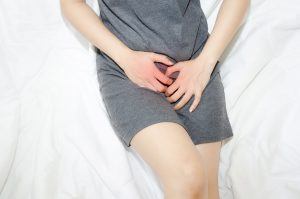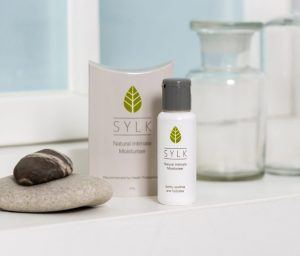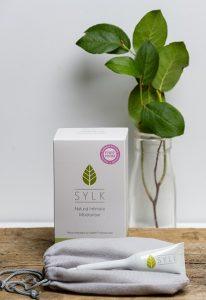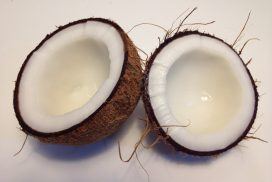
Vaginas are very clever organs
They self lubricate to keep themselves clean and moisturised. Quite unlike annoying ovens and faces! They are active, responsive organs. During sexual arousal, the blood flow in the vagina increases. This plumps up the vulval tissues and stimulates glands to produce extra secretions. Your pelvic floor muscles to contract to lift your uterus and that allows the vagina to elongate which is called “tenting”. This is a terrible name for an amazing process which does not need guy ropes or mallets (well, not unless there is also enthusiastic consent).
Part of your “turned on” feeling is these three things happening, but, frustratingly, being turned on is sometimes not enough to have great sex.

Sexuality isn’t just about having sex
…and there’s a lot more to sex than penetration. However, there’s not much more to penetration than lube!
If you have vaginal, vulval or pelvic pain then penetrative sex can be a challenge. Anticipating that sex is going to hurt can actually trigger pain, which can set up a pattern and a real problem for intimate relationships. If a gay woman finds penetration is painful then she can opt to avoid it, or change to something or someone more gentle. Heterosexual women often find it challenging to persuade her partner to help her discomfort by planing half an inch off his penis for her comfort.
Sex freed from worrying about penetration allows the sexual focus to be more on pleasure and fun. Not “get it in, is it in? Thank goodness, it’s in!” However, if you have vaginal dryness then getting it in can be a teeth gritting experience…as can talking about it.
What does vaginal dryness feel like?

Frequent urinary tract infections or cystitis.
Needing to pee more often than usual.
Sex causes stinging or pain no matter how aroused you are.
Light bleeding with sex – always follow that up with your GP.
What causes vaginal dryness?
The most common cause is hormonal changes associated with women’s life stages.
Pregnancy and breastfeeding both change oxytocin and prolactin hormone levels which can cause vaginal dryness. This can last for up to six months after the end of pregnancy or breastfeeding and can make sex uncomfortable during that time period.
Lower oestrogen production during peri-menopause and menopause affects the mucosal lining of the vagina, so, it is less efficient at self lubricating and become less hydrated and elastic. This affects all the tissues “down below”, not just the vagina – which is why you might find your vulva is itchy or sore and you become prone to urinary tract infections.
Some medications, including some contraception, can affect mucous membranes. If a new treatment is giving you dry eyes and a dry mouth, it’s probably making other bits dry too. This is particularly true for some cancer treatments, though living with cancer should not automatically mean living without sex. Try lubrication and have a chat with your nurse or doctor.
Douches, soaps and body sprays down below can upset the vagina’s pH and good bacteria causing vaginal irritation. Wash with plain water or aqueous cream. You can use a couple of drops of aqueous cream on toilet paper too. Be careful of shampoo getting into your bits if you wash your hair in the shower – rinse carefully!
Emotions can cause vaginal dryness too. Stress, conflict with your partner, body image issues, tiredness and lack of foreplay are obvious, but common. Though sometimes it can be tricky to resolve problems.
What can be done about vaginal dryness?

Sylk’s pH matches the slightly acidic vagina and so does not disrupt the natural, good bacteria you rely on to keep your vagina healthy. It also does not contain preservatives which are thought to cause irritation.
You can use it as vaginal moisturiser every day, just like you do with the skin on your face to improve dryness of the top layers of tissue.

If you have stress is affecting your relationship it’s a good idea to talk to your GP and each other. Remember that some medications can affect libido. But you may not need to put up with it as there are lots of treatments and options for managing vaginal dryness.
What about the other things that go in and out of vaginas?
If you have vaginal dryness and are using tampons or menstrual cups it’s a good idea to add a little bit of Sylk onto the tip of the tampon or the rim of the cup. Be frugal, too much and it will be too slippy to manipulate into place. Giving young women Sylk, a mirror, a large box of tiny tampons and privacy is a good way to let her learn how to insert tampons. Then she can go swimming, do PE, go on camps, or whatever else she wants to do during her period.
Women with pelvic floor weakness should also use lubrication if they are using a pelvic toner or cones. The important thing with pelvic floor gadgets is to use them. Making it easy on yourself is going to improve your compliance.
If you have been prescribed dilators then it’s important you use a gentle lubricant when you are using them. Go at your own pace, and if it hurts then consider how vaginas work. Know that “tenting” is a thing- after all, you wouldn’t put a ham into a cold oven. I know that dilators are far from sexy, but, you might find it helpful to find something that makes you see it less of a treatment and more as something which will lead to pleasure.
The extra good thing about Sylk is that it won’t stain your Egyptian cotton if you do go a bit overboard with lashings of the stuff!





